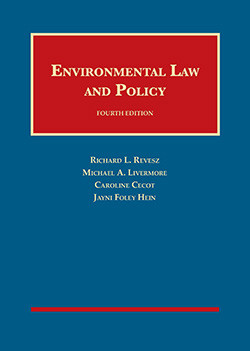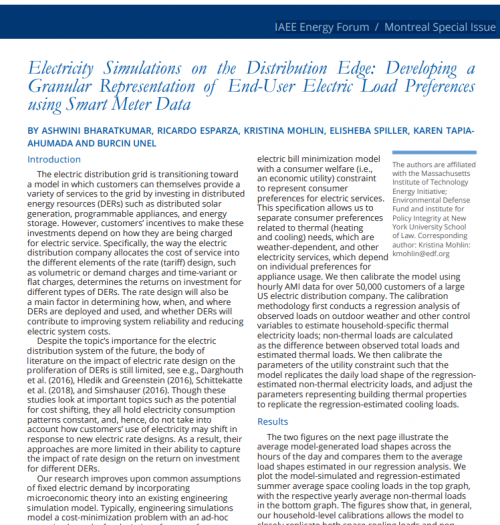-
Comments on Caballo West Federal Coal Lease
The Office of Surface Mining and Reclamation Enforcement (OSM) issued its environmental assessment of extending the Caballo Mine West Tract federal coal lease. The mining plan would extend the life of the mine by approximately nine years, from 2042-2051, and increase the amount of coal mined from an average of 10.1 million tons per year to approximately 13.5 tons per year. Despite quantifying over 23 million tons of yearly carbon dioxide equivalent emissions, OSM does not include a monetized estimate of the climate damages those emissions will produce. We submitted joint comments asking that OSM use the social cost of greenhouse gases to better weigh the real-world impacts of potential coal leasing.
-
EPA Science Advisory Board Input
As part of EPA’s June 5-6 meeting of the Chartered Science Advisory Board (SAB), we submitted both oral and written input on several issues, including the Clean Water Rule, power-sector emissions of air toxics, vehicle emissions standards, and the Science Transparency Rule.
-
Comments to Iowa Utilities Board on Energy Efficiency Program Benefits
The Iowa Utilities Board is currently reviewing its policies on energy efficiency planning. We submitted comments supporting some of the suggestions made by stakeholders to better gauge the benefits of the energy efficiency programs.
-
Electricity Simulations on the Distribution Edge
Developing a Granular Representation of End-User Electric Load Preferences using Smart Meter Data
The electric distribution grid is transitioning toward a model in which customers can themselves provide a variety of services to the grid by investing in distributed energy resources (DERs) such as distributed solar generation, programmable appliances, and energy storage. However, customers’ incentives to make these investments depend on how they are being charged for electric service. Despite the topic’s importance for the electric distribution system of the future, the body of literature on the impact of electric rate design on the proliferation of DERs is still limited. Our research improves upon common assumptions of fixed electric demand by incorporating microeconomic theory into an existing engineering simulation model.
-
Additional Comments to EPA and NHTSA on Vehicle Emissions Standards Economic Analysis
The Environmental Protection Agency (EPA) and the National Highway Traffic Safety Administration (NHTSA) are proposing to weaken key fuel economy and greenhouse gas emissions standards for future vehicle models. In October, we highlighted our concerns with some of the economic analysis supporting the proposal. The Alliance of Automobile Manufacturers submitted comments that included economic analysis supporting the proposed rule prepared by NERA Economic Consulting and Trinity Consultants. In December, we wrote supplemental comments rebutting NERA and Trinity’s analysis, identifying serious flaws and unexplained departures from longstanding practices. NERA recently responded.
Our latest comments detail how NERA’s response does not address many of the problems we previously discussed. As our comments explain, the analysis relies on unreliable modeling and methodologies, for which NERA still has not provided critical details. NERA also misstates or fails to respond to our points on a number of topics, such as scrappage and fuel savings benefits. We point out the shortcomings in NERA’s response and provide more detail on each of the topics.
-
California Incorporates Our Input on Societal Cost Test
California has long been a trendsetter in clean energy policy, and our input helped inform the state’s approach for evaluating distributed energy resources (DERs), such as rooftop solar installations. The state’s new approach, which will quantify the environmental benefits of DERs, could help influence other policies around the country, boosting the growth of clean energy sources. Our comments to the California Public Utilities Commission were heavily cited in a March 2018 administrative law judge ruling that was adopted by the Commission, requiring utilities to conduct a societal cost test to determine the cost-effectiveness of DERs. Having been “persuaded by the arguments of the Institute for Policy Integrity,” the ruling will require utilities to calculate the climate benefits of DERs by using the Social Cost of Carbon estimate developed by the Interagency Working Group. As we suggested further, California utilities will also quantify the air quality impacts of DERs. As a result of this decision, California will be able to create incentives encouraging DER installations that have the greatest benefit to the public.
-
Comments to DOE on Energy Conservation Standards for Small Motors
The Department of Energy called for input on developing and analyzing energy conservation standards for small electric motors. We submitted comments encouraging DOE to account for the monetized climate benefits of greenhouse gas emissions using social cost of carbon estimates.
-
Testimony to New Jersey Legislature on Valuing Climate Impacts
Peter Howard and Denise Grab both provided testimony at an April 25 New Jersey State Legislature hearing on climate change mitigation and what the state can do to address greenhouse gas emissions. They discussed how New Jersey can contextualize and weigh climate impacts by using the social cost of greenhouse gases.
-

Environmental Law and Policy, 4th Ed.
This casebook emphasizes environmental policy, as well as the structure and details of the federal environmental statutes. It focuses students’ attention on how tradeoffs between environmental goals and social goals are resolved in different and difficult contexts. The book has been updated to reflect new developments in the law of natural resource management, water pollution, and climate change.
-
Comments to EPA on Reconsideration of Mercury and Air Toxics Standards
The Environmental Protection Agency (EPA) is proposing to withdraw a prior finding that it is “appropriate and necessary” to regulate power-sector emissions of mercury and other “air toxics” under the Clean Air Act. We submitted comments arguing that EPA has failed to provide a reasoned explanation for this change of course.
Viewing recent projects in Climate and Energy Policy






